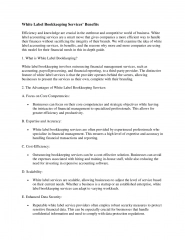
Global IT Management: Preparing Students for Virtual Teams
Explore the concept of virtual teams in the global IT management landscape. Learn why virtual teams are essential, the success factors for virtual teams, and how to effectively form, trust, collaborate, and communicate within these teams. Discover why expertise is no longer limited to a single domain, and how global virtual teams are shaping the future of business collaboration.
Download Presentation

Please find below an Image/Link to download the presentation.
The content on the website is provided AS IS for your information and personal use only. It may not be sold, licensed, or shared on other websites without obtaining consent from the author. If you encounter any issues during the download, it is possible that the publisher has removed the file from their server.
You are allowed to download the files provided on this website for personal or commercial use, subject to the condition that they are used lawfully. All files are the property of their respective owners.
The content on the website is provided AS IS for your information and personal use only. It may not be sold, licensed, or shared on other websites without obtaining consent from the author.
E N D
Presentation Transcript
Virtual Teams: Preparing Students for Global IT Management Bruce White, Bill Tastle, Andrei Semeniuta
Overview We are living in a global economy. Outsourcing, multi-national companies, and instant communications worldwide are becoming the norm. But are our students ready for this? Three professors established an experimental Virtual Global Team with two students from each campus to explore the topics
So what is a Virtual Team? The Online Business Dictionary defines Virtual teams as: Whose members are interact primarily through electronic communications. In today s market, global virtual teams are not the exception, but the rule as companies expand into the global market . Face-to-face teams are no longer the norm in global business .
Why Global Virtual Teams? Travel costs are up May be easier to quickly create a team of talented people The tools are available for virtual teams Expertise is not just in the American domain Following the concepts in The World is Flat by Thomas Friedman
How to have success with Virtual Teams Three success factors: 1. Team formation 2. Trust and collaboration 3. Team communication.
Team Formation Clear Sponsorship Solid goals / direction Right knowledge and skills Aligned with company s strategic goals Successful kick-off meeting Team identity And a clear understanding of cultural differences
Trust and Collaboration Trust is at the foundation of all successful relationships A need to explicitly establish and foster relationships Face-to-face communication helps Create a team identity Celebrate team collaboration
Team Communication Technologies continue to improve here: Face-to-face meetings Collaborative sites Social networking Weekly teleconferences Instant messaging, e-mail, corporate wikis and more
Offshoring / Outsourcing Issues: The economic and business logic for IT offshoring The dangers in offshoring IT activities Management of offshoring Offshoring and IT job opportunities in organizations Changes to the IS/IT curriculum to prepare future IS/IT managers to manage offshoring
Soft skills need to be strengthened with the development of trust and partnerships How do we prepare our students for the world of virtual teams ?
Our Project Three professors collaborated to create a global virtual team The professors were: William (Bill) Tastle Ithaca College, New York Bruce White Quinnipiac University, Connecticut Andrei Semeniuta Belarusian Trade-Economic University, Gomel, Belarus Each selected two students
(an observation) A person who speaks three or more languages is multilingual A person who speaks two languages is bilingual A person who speaks one language is an American
Ground Rules for the GVT Students needed to explore the communications technologies available Students needed to collaborate on three projects Students needed to publish their collaborative findings
Students From Ithaca College: Stephanie Elowson, Feifel Huang From Quinnipiac University: Mike Riddles, Andrew Pauxtis From Belarus Serj Kuznetsoff , Kirill Bruzgin
Tools / techniques Skype for verbal / voice communication (and two-way visual communication) Google Docs for virtual files Wikispaces for jointly developed files / documents
Other Issues International issues: Cultural issues Language issues (we used English exclusively) Time differences (Belarus is 7 hours ahead of eastern US time)
Expectations Documentation of effort Desired results Working through difficulties Defining success
Project 1 build the team Using Gmail, the students communicated about themselves, their interests, and their backgrounds All interacted with the others with welcomes and hellos
Project 2 exploring tools Students divided into three teams: Team 1 explored Google Docs Team 2 explored Wikispaces and Zoho for collaborative documents Team 3 explored Skype for communications and face-to-face communications Their documents were stored in a team folder on Google Docs and shared with each other and the professors
Discussion This project was a good first effort into exposing students to global virtual teams. There was no true face-to-face communication (other than the two students from each campus), although there were verbal interactions (using Skype) among the team. The students from the three campuses had not met each other previously.
Discussion - continued Communication and document sharing was done using free Internet based technologies. The professors were pleased with this initial effort. Students also expressed pleasure at working on a global basis as a method of gaining understanding in both global issues as well as technological issues.
Direction The limitation to this study with only three campuses and only six students. The authors suggest that this can and will be expanded in the future. We encourage others to join with us in the next iteration. The authors would like to expand the concept to at least five campuses (on at least three continents) with many more students
Questions, Comments, Suggestions?


![READ⚡[PDF]✔ Space Exploration 2008 (Springer Praxis Books)](/thumb/21608/read-pdf-space-exploration-2008-springer-praxis-books.jpg)



















